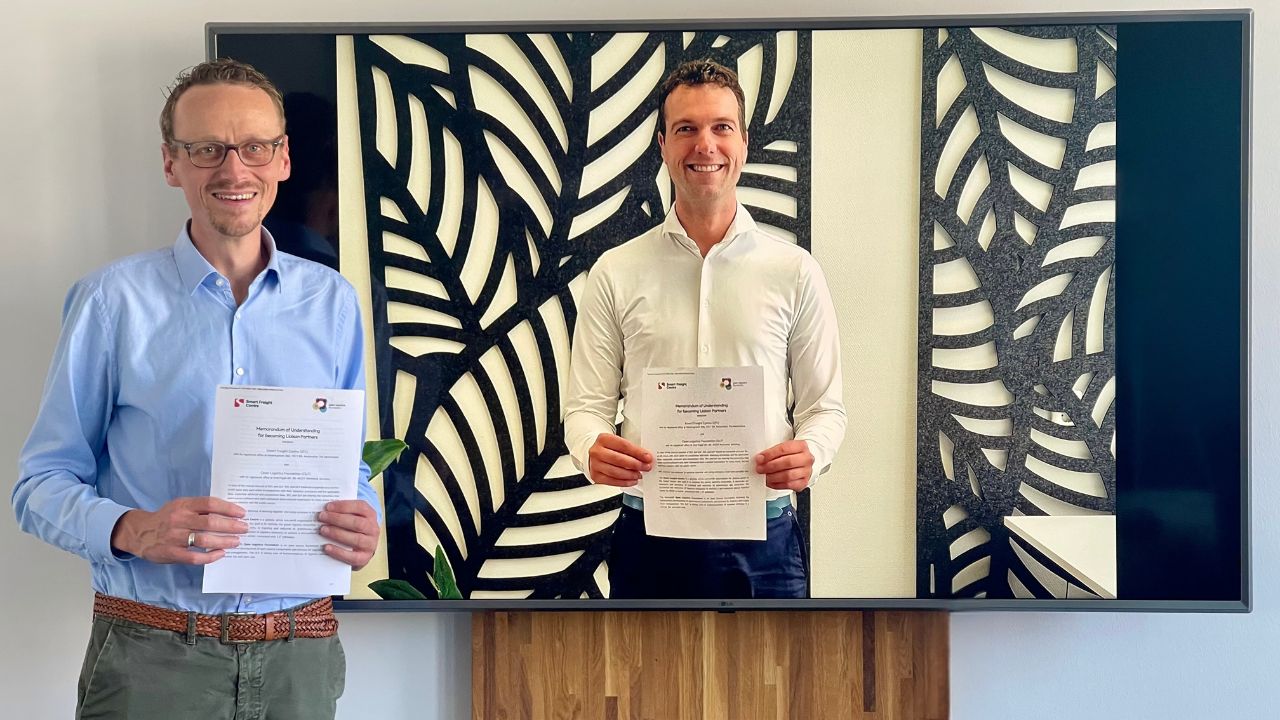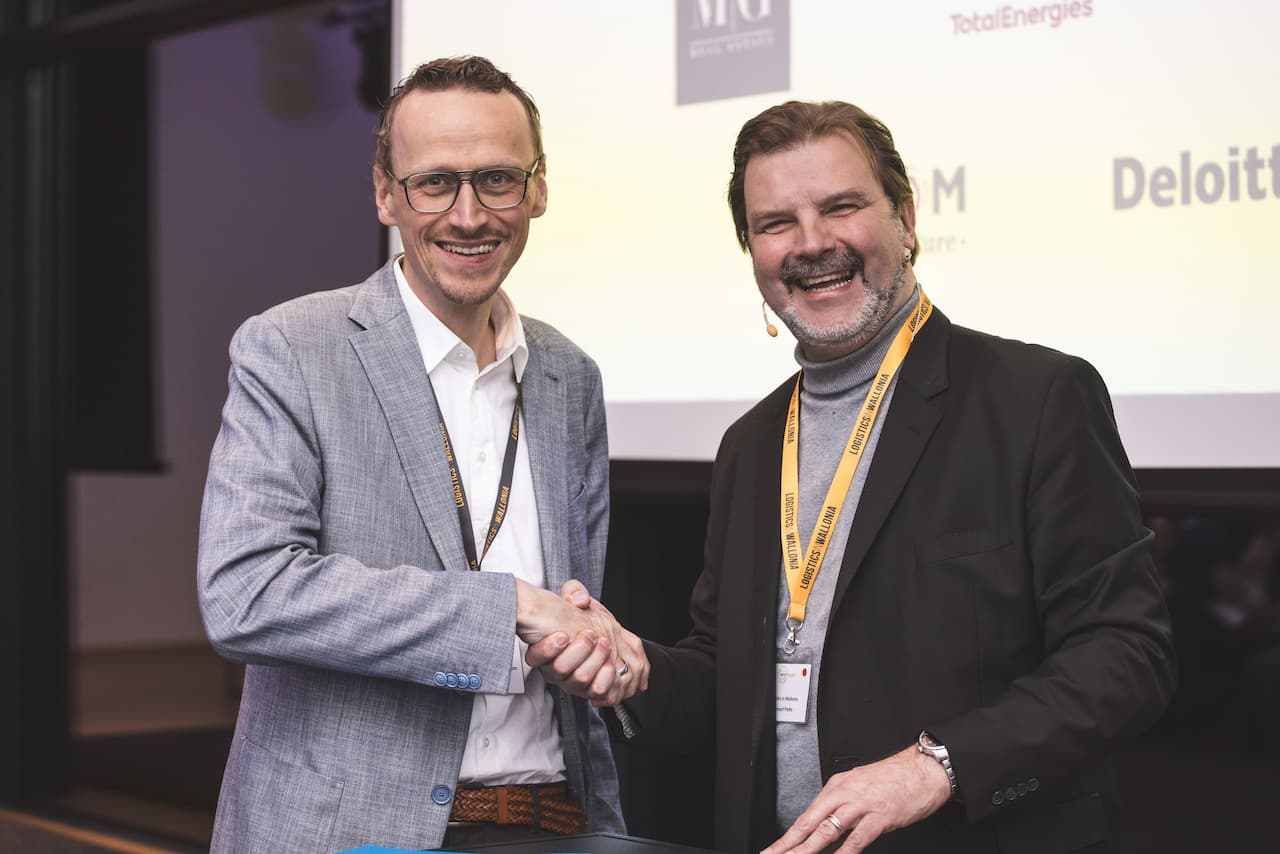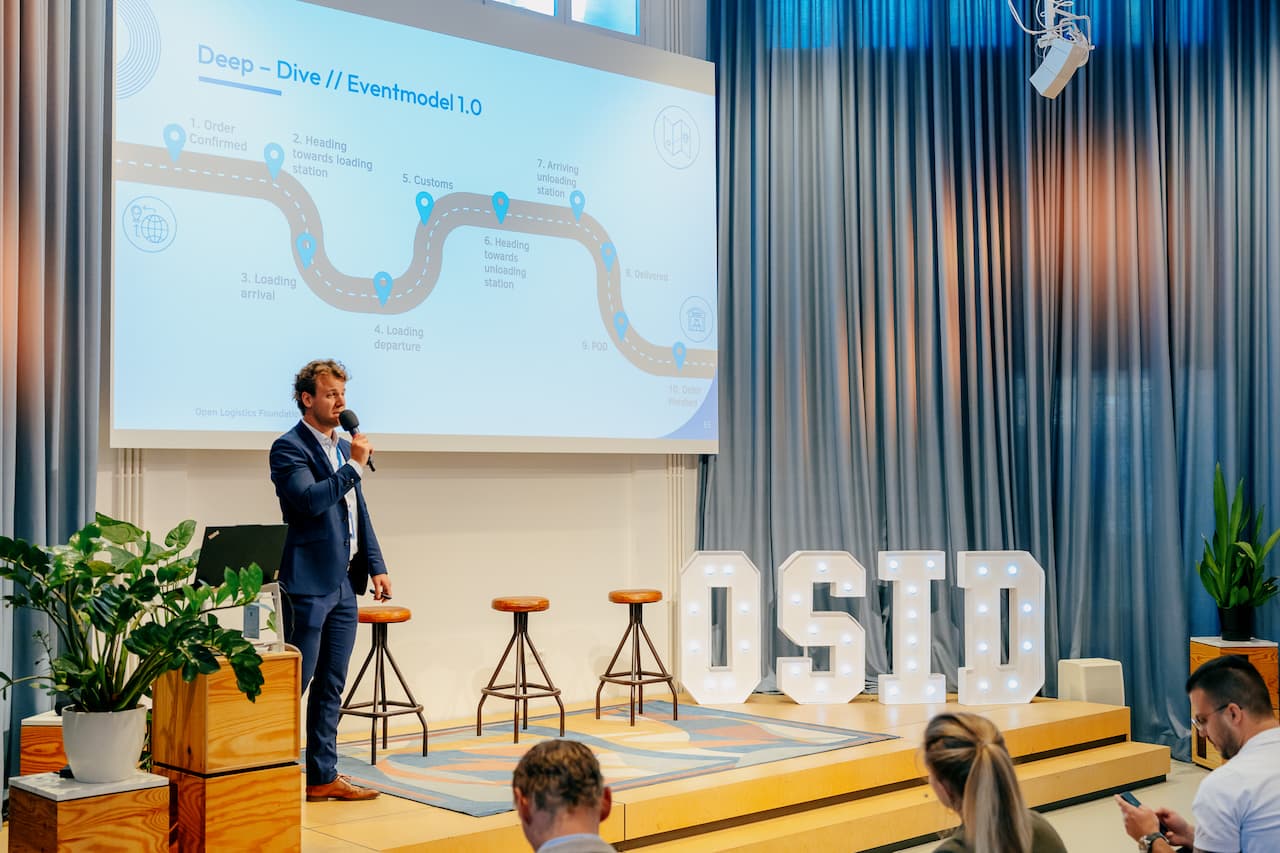Smart Freight Centre (SFC), a globally active non-profit organisation for climate action in the freight transport sector, working with more than 180 multinationals globally, aims to support the global logistics ecosystem in measuring and reducing greenhouse gas (GHG) emissions. Key achievements in the field of emissions reporting include the development of the GLEC Framework, the only globally recognised methodology for the harmonised calculation and reporting of the logistics GHG footprint across the multimodal supply chain, and the ISO 14083 standard for quantifying and reporting greenhouse gas emissions from transport. An API interface to simplify the digital exchange of sustainability data along the supply chain was recently developed in the iLEAP project. The project is being operated by Smart Freight Centre and the SINE Foundation as a technical partner.
The non-profit, commonbenefit organisation Open Logistics Foundation promotes the collaborative development of open source components and services for logistics and supply chain management. In the Open Logistics Foundation, more than 35 member companies and organisations from all over Europe design and develop open standards for efficient logistics. The topic of sustainability in logistics is becoming increasingly important for logistics service providers, as well as logistics IT companies: legal requirements are increasing, as are expectations on the part of manufacturers and shippers.
Andreas Nettsträter, CEO of the Open Logistics Foundation: “In logistics in particular, it is clear that sustainability does not stop at the boundaries of a company. Together with Smart Freight Centre, we want to raise the potential for cooperation between companies in logistics. Smart Freight Centre is one of the world’s leading addresses for sustainability in logistics, plays a key role in the decarbonisation of logistics and has a high level of credibility. We are united by the idea that open source implementations and standards ensure the establishment of harmonised solutions throughout the supply chain. By implementing green and sustainable logistics strategies, companies can not only improve their environmental footprint but also strengthen their competitiveness.”
Rik Arends, Director Sustainable Freight Buyers Alliance at Smart Freight Centre: “Smart Freight Centre supports the logistics ecosystem worldwide in tracking and reducing emissions to meet the 1.5-degree climate target. However, sustainability can only succeed if companies work together. A standardised digital exchange is essential to track emissions. This requires transparency and trust, which is what the Open Logistics Foundation stands for, a drive to ensure a standardised adoption of open source standards with multinational organisations who want change. We look forward to partnering with the Open Logistics Foundation and driving decarbonisation and standardisation of logistics emissions together.”
Through their partnership, the Open Logistics Foundation and Smart Freight Centre aim to strengthen the knowledge transfer between the two organisations and into the economy and ensure targeted matchmaking between interest groups from all over Europe. In addition, joint events are to be organised. The first joint projects are already in the pipeline.





